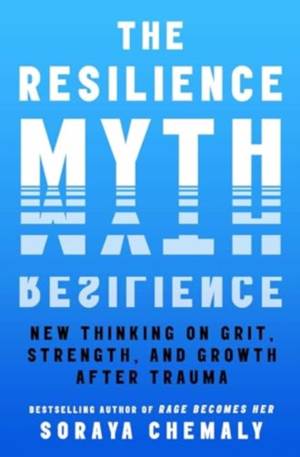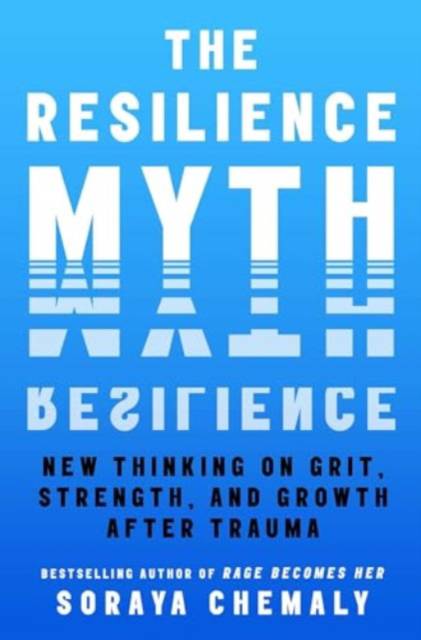
Bedankt voor het vertrouwen het afgelopen jaar! Om jou te bedanken bieden we GRATIS verzending (in België) aan op alles gedurende de hele maand januari.
- Afhalen na 1 uur in een winkel met voorraad
- In januari gratis thuislevering in België
- Ruim aanbod met 7 miljoen producten
Bedankt voor het vertrouwen het afgelopen jaar! Om jou te bedanken bieden we GRATIS verzending (in België) aan op alles gedurende de hele maand januari.
- Afhalen na 1 uur in een winkel met voorraad
- In januari gratis thuislevering in België
- Ruim aanbod met 7 miljoen producten
Zoeken
The Resilience Myth
New Thinking on Grit, Strength, and Growth After Trauma
Soraya Chemaly
Paperback | Engels
€ 18,45
+ 36 punten
Uitvoering
Omschrijving
In this thought-provoking exploration, writer and activist Soraya Chemaly challenges our common, most dearly held myths of resilience and urges us to shift our perspective from prioritizing individualized traits and skills to uplifting collective care, material life, and open-ended connections with our communities. Resilience, she proves, is always relational. Chemaly dismantles notions of resilience rooted in the philosophies of “mind over matter,” “mental toughness,” “strength,” and “positive thinking,” arguing that our modern version of “resilience” is a bill of goods that has been sold to us by capitalism, colonialism, and ideologies that embrace supremacy over others. Instead, she makes the case that true resilience comes from acknowledging our fragility, recognizing our interdependencies—on each other, on nature, on time—and cultivating nurturing relationships that sustain us. Throughout, Chemaly provides concrete examples of how to enact this new model in our daily lives.
She sheds new light on ACE (adverse childhood experiences) research to reframe how parents and educators should think about the long-term impact of childhood trauma, debunks the powerful notion of “bouncing back,” and explains why we have to turn away from believing that we always have to “soldier on.” Blending rigorous research and enthralling personal storytelling, The Resilience Myth offers a new vision for collective healing by emphasizing care for our neighbors—both human and nonhuman—and our environments over just ourselves. By prioritizing compassion, creativity, and connection, this book ignites essential conversations about fostering resilience for all, not just for those who can afford it all.
She sheds new light on ACE (adverse childhood experiences) research to reframe how parents and educators should think about the long-term impact of childhood trauma, debunks the powerful notion of “bouncing back,” and explains why we have to turn away from believing that we always have to “soldier on.” Blending rigorous research and enthralling personal storytelling, The Resilience Myth offers a new vision for collective healing by emphasizing care for our neighbors—both human and nonhuman—and our environments over just ourselves. By prioritizing compassion, creativity, and connection, this book ignites essential conversations about fostering resilience for all, not just for those who can afford it all.
Specificaties
Betrokkenen
- Auteur(s):
- Uitgeverij:
Inhoud
- Aantal bladzijden:
- 304
- Taal:
- Engels
Eigenschappen
- Productcode (EAN):
- 9781668079133
- Verschijningsdatum:
- 29/08/2024
- Uitvoering:
- Paperback
- Afmetingen:
- 152 mm x 229 mm
- Gewicht:
- 273 g

Alleen bij Standaard Boekhandel
+ 36 punten op je klantenkaart van Standaard Boekhandel
Beoordelingen
We publiceren alleen reviews die voldoen aan de voorwaarden voor reviews. Bekijk onze voorwaarden voor reviews.









